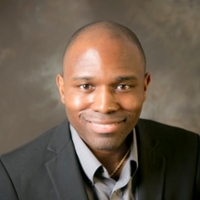Director of Medical Affairs, Merck; Former Postdoc, Department of Biomedical Engineering; 2009-2013

Interview By Philip Webber, PhD
Postdoctoral Fellow, Dept. of Pharmacology
Dr. Pendergrass received his undergraduate degree in Health and Exercise Science with a minor in Chemistry from Wake Forest University. His interest in research and the medical field led him to enroll in the Postbaccalaureate Research Education Program (PREP), where it became clear that asking scientific questions was something he wanted to continue doing in his career. In 2009, he earned his Ph.D. in Physiology and Pharmacology from Wake Forest University School of Medicine. He then went on to conduct his postdoctoral research under the guidance of Dr. Michael E. Davis in the Division of Cardiology at Emory University School of Medicine and Department of Biomedical Engineering at Emory University and Georgia Tech. Dr. Pendergrass received numerous awards and funding for his research. In 2014, Dr. Pendergrass transitioned to his current position as cardiovascular metabolics medical affairs director with Merck & Co., Inc.
You are the Director of Medical Affairs for the cardiovascular and metabolic disease team at Merck. Can you provide a brief explanation of the role of medical affairs and more specifically what you do as the director?
The medical affairs director role at Merck & Co., Inc. is analogous to the medical science liaison role at other companies. We act as field scientific experts who speak with leading clinicians and academics about disease states and effective therapies. This allows clinicians and pharmaceutical companies to synergize their efforts in bringing the best treatments to patients.
What factored into your decision to move into industry?
During my postdoc I noticed the reduced funding available through the NIH and after seeing more established professors feeling the crunch, it took some of the joy out of my research. There were also some practical considerations: as a young adult looking at starting a family and paying a mortgage, finding financial stability became a factor as well.
What resources at Emory, OPE, or PDA did you take advantage of in order to move towards the medical affairs field?
I took advantage of the grant writing classes with Dr. Janet Gross, which helped me develop my bio-sketch and grant-writing abilities. Dr. Gross then personally helped me put together grants for F32, the NIH Loan Repayment Program, and the UNCF/Merck postdoctoral fellowship. In addition, the career symposiums were extremely helpful in highlighting different career paths and developing connections that helped me move into my current career. Finally, Dr. Mary DeLong helped to shape my résumés, identify people to speak with about career opportunities, and ensure I used resources like LinkedIn. Additionally, Dean Pat Marstellar and Dr. Robert Lee provided mentorship with introductions to people in various jobs; these introductions grew into informational interviews and networking opportunities. My postdoctoral mentor Dr. Michael Davis also supported my decision and provided assistance in my career search.
How did you get to your current position?
My fellowship with UNCF/Merck helped me network with professionals at Merck & Co., Inc.. As part of the fellowship, I went to a three-day fellows meeting in Blue Bell, PA where I was introduced to my Merck mentor. My mentor and I immediately connected due to shared research interests and overlapping network connections, and he was the person I first approached when I learned about the job posting at Merck & Co., Inc.. He helped me to do some internal networking that allowed me to construct the best application for the position; I then received an interview following my application submission. In this case, my manager wanted someone on the team without industry experience: someone that would provide a different perspective on situations, but would also be a blank slate that could be molded in a manner that would best fit the manager’s needs.
What skills that you developed in your academic career translate to your career today?
First and foremost, the academic experience is an intimate relationship between the research and clinical implications, which allows you to have deep scientific discussions with clinicians. This can range from the more intricate details related to clinical studies to diving into biological pathways to explain mechanisms of action. The primary goal is to leverage your scientific expertise to trade information with academics and clinicians. The academic track allowed me to network with some of the leading experts who I work with on a regular basis. This is really important for getting in the door to speak with very busy research leaders and clinicians.
Do you have any advice for postdocs considering careers in the biotech and pharmaceutical industry? What can they do to make themselves standout?
As you progress through your career, you realize the most important thing is not who you know but who knows you. The way to stand out is to network with those in your field in a genuine manner; be proactive in talking to some of the leading research experts; ask good questions in seminars and lectures to let people know you are genuinely interested in their work. Just doing these things will help you learn, and people will remember you as a competent and confident individual. Take advantage of all the networking resources available to you at your institution and meet with people to discuss your interests. Outside of networking, you should prepare yourself by learning both the basic science and the clinical practices and guidelines for your therapeutic area. These instructions can go a long way.
This interview was published in April 2015

